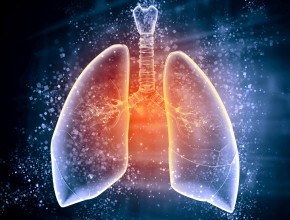References
Bisgaard H, Stokholm J, Chawes BL, et al. Fish Oil-Derived Fatty Acids in Pregnancy and Wheeze and Asthma in Offspring. N Engl J Med. 2016 Dec 29;375(26):2530-9. doi: 10.1056/NEJMoa1503734. PubMed PMID: 28029926.Roman Jaeschke: Good afternoon. Welcome to another edition of McMaster Perspective. Probably Dean Professor O’Byrne does not need introduction anymore. Welcome to another asthma segment. Going to the old times, I remember my grandmother who was taking a very tiny shot of cognac every evening and who was giving us a little bit of fish oil every morning. I just ran through the paper on fish oil use in prevention of bronchospasm or asthma in children. Could you tell us your views on that?
Paul O’Byrne: Certainly. This study looked at a cohort of children called COPSAC (Copenhagen Prospective Studies on Asthma in Childhood) – that is a Danish cohort of children and the study is run from Copenhagen – and, as you said, it compared treatment of pregnant women with either polyunsaturated fatty acids (fish oil) that are obtained from cold water fish particularly or olive oil as treatment during pregnancy. It looked at the risk of the children born subsequently to these mothers – and this was not a high-risk cohort, this was a random cohort of pregnant women – of having either recurrent wheezing or a diagnosis of asthma up to the age of 5 years. The study demonstrated that the mothers treated with the polyunsaturated fatty acids had a significant reduction in the children being labelled either as recurrent wheezers or with asthma over that 5-year period. It was about a 30% risk reduction or an absolute reduction of about 7%. The data are very interesting but there is still much to be learned as to whether we should be supporting recommending use of fish oil supplementation in pregnancy.
What is particularly interesting for me is that there is good biological rationale for why fish oil supplementation might benefit asthma. Some of the really important bronchoconstrictor mediators that cause symptoms in asthma are derived from arachidonic acid metabolism, which is a lipid in the cell membrane metabolized into prostaglandins or cysteinyl leukotrienes. Leukotrienes are immensely potent constrictors, the most potent constrictors of airways that we know about. When you supplement with fish oil, you change the relative ratio of the fatty acids and the lipid membranes and you can demonstrate production of, for example, leukotriene C5 instead of leukotriene C4, which is an arachidonate metabolite, and these modified leukotrienes are less potent constrictors. So there is a good scientific reason why fish oil might be useful in asthma.
What is really interesting, however, is that the fish oil was given during pregnancy and therefore the fetus was exposed to this in utero; it was not continued after the pregnancy, after the mom had delivered. And if this does hold up and is replicated in other clinical studies, it suggests that the production of these eicosanoids probably is important in the risk of that child having asthma but in the uterus, that the risk is actually enhanced in utero. That is a fascinating thought that the baby may be born predisposed to having asthma because of the relative constitution of the lipids and membranes in utero.
Roman Jaeschke: It is fascinating. I suspect it may well be repeated in children. That would probably be the next step.
Paul O’Byrne: It is also important to say, however, that there is quite a long history of looking at fish oil supplementation in people with established asthma because of this potential biological benefit. Scientists have argued, “If we can treat people with fish oil, maybe we can reduce the risk of constriction in people who already have the disease.” That area is very controversial. There are studies that show that if you give quite high doses of fish oil in capsules, you can reduce the magnitude of bronchoconstriction caused by exercise by about 50%. So that is very supportive of using fish oil in that situation. We published a study about 3 or 4 years ago where we did the same thing – 6 weeks of treatment with fish oils compared to olive oil – and looked at the ability of the airways to constrict and the risk of these asthmatics having eosinophilic airway inflammation. We found no effect of the fish oil versus the olive oil, although we did demonstrate very striking differences in the relative proportion of these fatty acids in the circulation, so we knew the patients were taking them, we knew they were available, but they had no effect on these outcomes we measured. So there is a little controversy.
Roman Jaeschke: So it is too early to make definitive conclusions. On behalf of children who are eating fish oil in a raw form, I would like to thank you for a little bit of skepticism.
Paul O’Byrne: Great pleasure.
Roman Jaeschke: Thank you very much. I hope it is some useful information to our listeners. Goodbye.
 English
English
 Español
Español
 українська
українська










